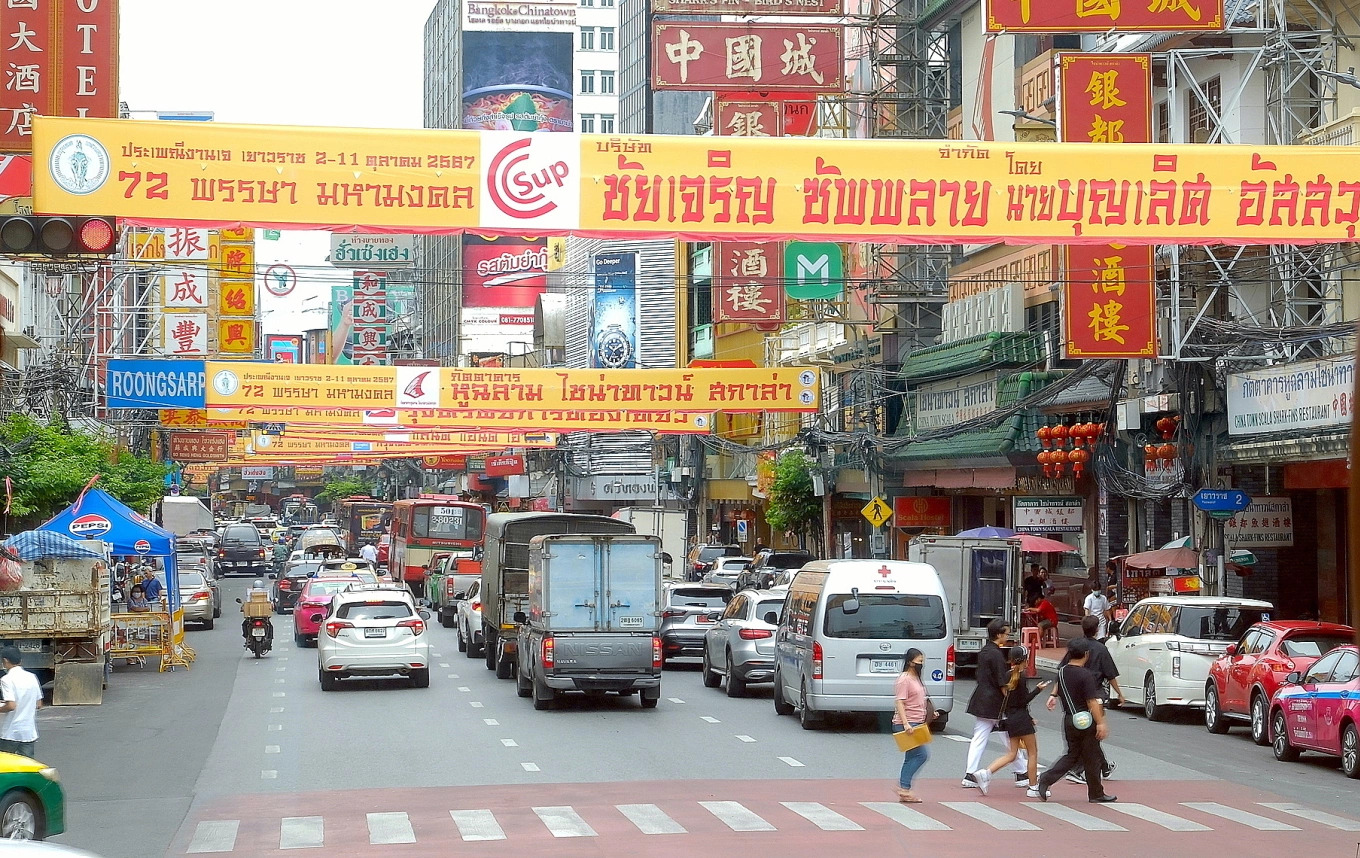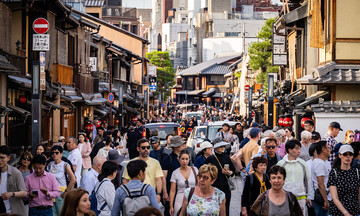Thailand's deputy prime minister and finance minister, Pichai Chunhavajir, launched the "TouristDigiPay" trial program on 18/8. This program allows foreign tourists to convert cryptocurrency into baht for spending in the country, aiming to revitalize the stagnant tourism sector.
The pilot program is scheduled to run for 18 months. The Thai Ministry of Finance is collaborating with key government agencies, including the Securities and Exchange Commission (SEC), the Anti-Money Laundering Office (AMLO), and the Ministry of Tourism and Sports.
Mr. Pichai Chunhavajir emphasized at a press conference that this is not a form of direct payment using digital assets. "We do not accept cryptocurrency as a currency, but only facilitate its conversion to baht," he said, adding that this makes the "TouristDigiPay" program unique and potentially the first of its kind globally.
This initiative comes amid a sharp decline in international tourist arrivals to Thailand, particularly from China, since the beginning of the year. Through the program, the Thai government aims to increase tourist spending by 10%, equivalent to over 175 billion baht (5.4 billion USD), contributing to the national economy. This move also aims to create a new experience in the Thai tourism industry, allowing tourists to easily convert digital assets into local currency.
 |
Illustrative image of cryptocurrency taken on 24/1/2022. Photo: Reuters/Dado Ruvic |
Illustrative image of cryptocurrency taken on 24/1/2022. Photo: Reuters/Dado Ruvic
The program applies only to foreign tourists temporarily residing in Thailand. Tourists will convert cryptocurrency to baht through digital asset businesses and e-wallet providers licensed by the SEC. The funds will then be transferred to e-wallets supervised by the Bank of Thailand (BOT) and can be used for payments at stores and restaurants nationwide via QR codes. Sellers will still receive payments in baht as in regular transactions.
To participate, tourists must open an account with an e-wallet provider and complete the know-your-customer (KYC) and customer due diligence (CDD) processes as required by AMLO.
To prevent financial crimes like money laundering, the program has transaction limits: a maximum of 500,000 baht (15,400 USD) per month for businesses using POS machines and 50,000 baht (1,540 USD) for smaller shops. Transactions are prohibited at establishments on AMLO's high-risk list. Tourists can only withdraw funds after closing their e-wallet accounts and cannot directly withdraw cash from the balance.
The program will operate in a regulatory sandbox to ensure risk control and prevent the use of cryptocurrency as a direct payment method.
According to Lavaron Sangsnit, secretary-general of the Ministry of Finance, the program is inspired by the previous "Phuket Sandbox" model and may be expanded if it proves effective and safe. In the future, officials may consider raising transaction limits or allowing the use of digital assets for high-value purchases like real estate or yachts.
The idea of using cryptocurrency to boost tourism has been considered by the Thai government for some time. The SEC recently completed a public consultation phase on applying financial technology and digital assets to economic and tourism development, which ended on 13/8.
Naphongthawat Phothikit, senior director at the BOT's Payment Systems Policy and Financial Technology Department, said the central bank is working with e-wallet providers to develop a "Tourist Wallet" specifically for international visitors. This e-wallet will support QR code payments, beneficial for tourists from countries without cross-border payment agreements with Thailand. Initially, the Tourist Wallet will function as an e-money system supporting foreign currency exchange and may integrate international credit and debit cards in the future.
 |
Bangkok street scene in 9/2024. Photo: Bich Phuong |
Bangkok street scene in 9/2024. Photo: Bich Phuong
While this transaction method opens up new avenues for tourism, it also carries risks such as money laundering, fraud, cryptocurrency price volatility, and legal loopholes. This is why programs like "TouristDigiPay" must operate in a supervised sandbox environment, with KYC and CDD requirements, spending limits, and a restricted transaction list guided by AMLO.
If implemented as planned, TouristDigiPay will mark Thailand as the first Southeast Asian nation to pilot a program allowing international tourists to convert cryptocurrency into local currency for spending on a national scale, with the involvement of financial regulators, the central bank, and e-wallet businesses.
In Singapore, some shops and tech companies accept cryptocurrency payments in certain cases. However, this occurs under the strict control of the Monetary Authority of Singapore (MAS) and is not part of a national policy promoting tourism through cryptocurrency.
Globally, some countries have adopted cryptocurrency payments for tourism services. According to SCMP, Bhutan is the first country to implement a national cryptocurrency payment system for tourism. This system is operated through a partnership between Binance Pay and the digital bank DK Bank, with over 1,000 locations accepting cryptocurrency payments via QR codes. Tourists can use cryptocurrency to pay for most tourism services, from visa applications and airfare to hotel bookings and tours.
According to Reuters, El Salvador, the first country to recognize Bitcoin as legal tender, allows tourists to widely use Bitcoin for services like accommodation, transportation, and tourism domestically.
In Dubai (UAE), Emirates airline has signed a preliminary agreement with Crypto.com, planning to start accepting cryptocurrency payments in 2026. Other airlines like Air Arabia have also accepted the stablecoin AE Coin for flight bookings.
Bich Phuong (According to Nation Thailand, SCMP, Reuters)












